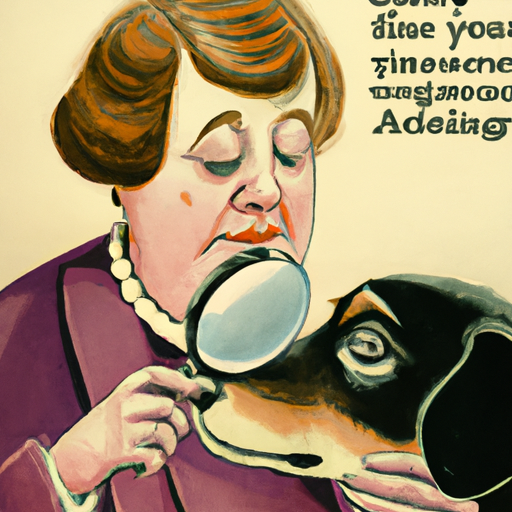As a dedicated caregiver, you likely pay close attention to your dog’s overall health and wellbeing. So when you notice your dog’s eyelid is swollen, you may feel a surge of worry and concern. It’s important to understand that canine eyelid swelling, also known as blepharitis, can occur due to a multitude of reasons, from harmless irritants to serious health conditions.
Table of Contents
- Causes of Swollen Eyelids in Dogs
- Signs and Symptoms
- Diagnosis and Treatment
- Prevention Tips
- Frequently Asked Questions
Key Takeaways
- Swollen eyelids can be caused by a variety of factors, including allergies, trauma, infections, and tumors.
- Symptoms may include redness, itching, discharge, and changes in behavior.
- Diagnosis typically involves a thorough vet examination and may involve tests.
- Treatment depends on the cause, and it may involve medication, surgery, or lifestyle changes.
- Regular check-ups and maintaining a clean environment can help prevent swollen eyelids.
Causes of Swollen Eyelids in Dogs
The swelling of your dog’s eyelid can be caused by a variety of factors. One of the most common is an allergic reaction. Dogs, like humans, can have allergic reactions to certain substances, such as pollen, mold, dust mites, or certain foods. In such cases, the eyelid’s swelling is often accompanied by other signs of allergies, like itching and redness.
In addition, trauma can lead to a swollen eyelid. If your dog gets into a scuffle with another animal or accidentally bumps its face on a hard surface, the eyelid may swell as a result.
Infections are another common cause. Bacteria, viruses, or fungi can cause infections in the eye that lead to swelling. Conjunctivitis, also known as pink eye, is a common infection that affects dogs.
Finally, tumors or growths can cause the eyelid to swell. These can range from harmless cysts to malignant cancers.
Signs and Symptoms
In addition to swelling, there are other signs to watch out for. These may include:
- Redness
- Excessive tearing or discharge
- Squinting or difficulty opening the eye
- Changes in behavior, such as increased scratching or rubbing of the eye
- Visible growths or abnormalities on the eye
Diagnosis and Treatment
If you notice your dog’s eyelid is swollen, the first step is to schedule a visit with your veterinarian. They will perform a thorough examination and may conduct tests to determine the cause of the swelling. This could involve taking a sample of any discharge for laboratory testing, or perhaps an ultrasound or biopsy if a tumor is suspected.
Treatment will depend on the cause of the swelling. Allergies may be managed with antihistamines or a change in diet. Trauma may require rest and anti-inflammatory medication. Infections will likely be treated with antibiotics or antifungal medication. Tumors or growths may require surgical removal.
If your dog’s eyelid remains swollen despite treatment, it’s crucial to follow up with your vet. They may refer you to a veterinary ophthalmologist for further examination and treatment.
Prevention Tips
While it’s not always possible to prevent swollen eyelids in dogs, there are steps you can take to reduce the likelihood. Regular check-ups with your vet can help catch any potential issues early. Keeping your dog’s living environment clean can help prevent infections. If allergies are a concern, consider getting an air purifier or regularly cleaning your dog’s bedding to reduce allergens. Learn more about dog allergies.
Frequently Asked Questions
Q: Can I use human eye drops for my dog’s swollen eyelid?
A: It’s essential to consult with your vet before using any medication on your dog. Some human eye drops may be safe for dogs, but others could cause harm.
Q: How long does it take for a dog’s swollen eyelid to heal?
A: The healing time will depend on the cause of the swelling and the treatment given. In some cases, the swelling may reduce in a few days. In other cases, it may take weeks.
Q: Is a swollen eyelid a sign of an emergency?
A: If your dog’s swollen eyelid is accompanied by other symptoms like difficulty breathing, extreme lethargy or loss of appetite, seek veterinary care immediately.
Q: Can swollen eyelids be prevented?
A: While not all cases of swollen eyelids can be prevented, regular vet check-ups, a clean living environment, and careful observation of your dog’s behavior can help reduce the risk.
Remember, your dog’s health is a priority, and it’s essential to be proactive and attentive to their needs. A swollen eyelid may be a sign of a minor issue or a symptom of a more serious condition. The key is to stay vigilant and consult your vet when needed. Know more about your dog’s health.



